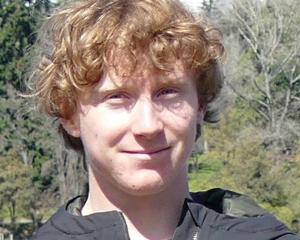
There have been two club forums held in the city during the past week or so and Sport Otago development and events manager Michael Smith believes sporting clubs are beginning to warm up to the idea of change.
The Auckland University of Technology delivered its national club survey to about 25 regional sport organisation representatives at the Sargood Centre on Tuesday night.
The report was commissioned by the New Zealand Amateur Sport Association (NZASA) and surveyed 775 clubs from many different codes.
‘‘There was a lot of good stuff that came out of it,’’ Smith said.
‘‘The message that they [NZASA] are trying to get across is that for the wellbeing and health of society, sporting clubs have an important and beneficial role to play.
‘‘That was the reason they have done the survey.
‘‘One of the interesting points was a lot of the successful clubs had someone who was employed for 15 hours or more and that was really helping them.
‘‘The clubs that were running purely on a voluntary basis were really battling.’’
The report revealed clubs of 200 members or more were getting larger, while clubs of fewer than 100 members were getting smaller.
‘‘With a majority of sport clubs losing money (or merely breaking even) and the future of grant-trust funding uncertain, it is important to better understand commercial sponsorship as a viable alternative,’’ the report stated.
‘‘Clubs across codes that are successful in generating sponsorship revenue tend to have a dedicated person or sub-committee as opposed to assigning the job to a single board member with another portfolio.’’
Smith believes clubs are more open to change and ideas such as bringing in other sports into the fold to better utilise clubrooms and share fixed costs.
‘‘One of the ideas that keeps popping up is the talk of hubs that can house more clubs.’’
Last week, Sport Otago, the Otago Rugby Football Union and the Otago Cricket Association jointly held a club forum to look at some of the issues facing clubs and to discuss ideas.
Otago Cricket Association capability manager Andrew Petrie said the meeting attracted interest from not just major codes such as rugby and cricket, but indoor bowls, volleyball, motorsport and a representative from the Dunedin City Council also attended.
Gianna Leoni, from the South Pacific Rugby League and Sports Club, spoke at the meeting about the successful model it has employed.
South Pacific offers various sports and people can join and pay one overall club fee to play the different sports.
South Pacific does not have clubrooms but sometimes use the facilities at the Alhambra-Union Rugby Football Club.
‘‘A cool thing for us was for clubs to understand that it is not all about the facilities or the clubrooms. Times are changing in that regard,’’ Petrie said.
‘‘The idea for the meeting is we wanted the clubs to share ideas about what is working well and what isn’t and how we can overcome challenges together.
‘‘We want them to think about what they can do differently in their club and how they can work with others.
‘‘The proof of it will be over time. It is not going to happen overnight. It is going to take time to build relationships and get people working together.’’
Change is already happening. South Pacific is a shinning example but Mornington Football Club has its clubrooms at the Zingari-Richmond Rugby Football Club, and Caversham Associated Football Club and Pirates Rugby Football Club have a similar arrangement in place.











